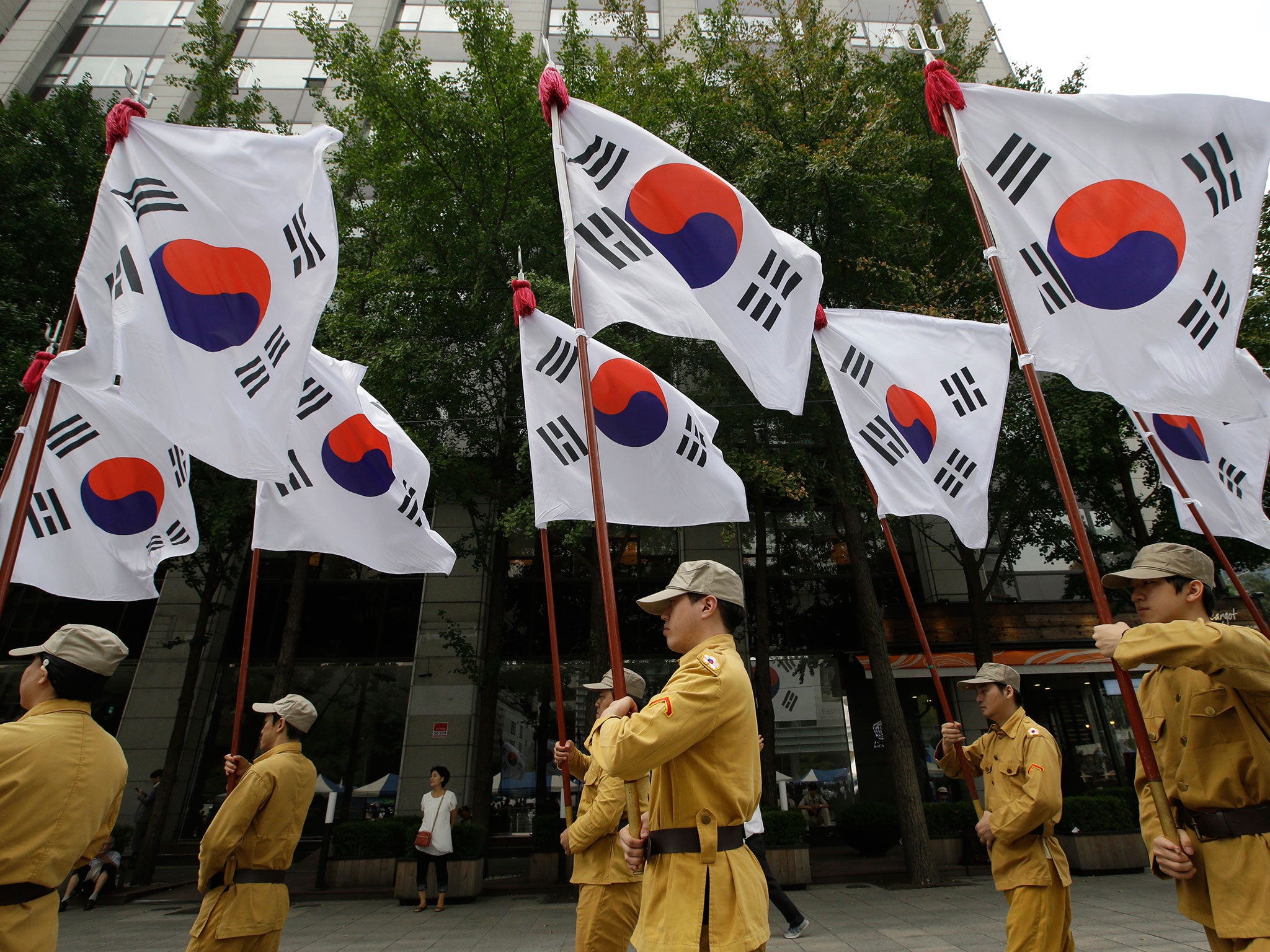Korean anger: Abe gaffe eased slightly by emollient Akihito
Angry protesters took their anti-Japan rants to the streets as South Korea celebrated Liberation Day from Japanese rule in 1945

Your support helps us to tell the story
From reproductive rights to climate change to Big Tech, The Independent is on the ground when the story is developing. Whether it's investigating the financials of Elon Musk's pro-Trump PAC or producing our latest documentary, 'The A Word', which shines a light on the American women fighting for reproductive rights, we know how important it is to parse out the facts from the messaging.
At such a critical moment in US history, we need reporters on the ground. Your donation allows us to keep sending journalists to speak to both sides of the story.
The Independent is trusted by Americans across the entire political spectrum. And unlike many other quality news outlets, we choose not to lock Americans out of our reporting and analysis with paywalls. We believe quality journalism should be available to everyone, paid for by those who can afford it.
Your support makes all the difference.An expression of "remorse" by Japan's Emperor Akihito on the 70th anniversary of the Japanese surrender in the Second World War and “liberation” of the Korean peninsula did a little to appease the historic rage shared by South and North Korea.
While engaging in recriminations against each other, the two Koreas criticised Japan’s Prime Minister Shinzo Abe for failing to offer a fresh apology during a speech on Friday for his country’s role in the 35 years of rule over the Korean peninsula from 1910 to the end of the Second World War.
North Korea’s shrill response, with the state-run KCNA news agency calling it “an unbearable mockery of the Korean people”, contrasted with South Korea’s President Park Geun-hye’s measured remark yesterday that Mr Abe’s statement “left much to be desired”.
Both responses suggested Mr Abe’s statement had resolved none of the bitterness, although Emperor Akihito did improve matters a little by expressing “deep remorse” – and the “hope that the ravages of war will never be repeated”.
Mr Abe’s remarks – in which, despite expressing his “utmost grief” for the “damage and suffering” Japan inflicted during the Second World War, he said future generations should not be “predestined to apologise” – had already reopened wounds. Calling Mr Abe’s speech an attempt “to cover up past crimes”, a North Korean spokesman said: “We categorically denounce and reject such an act of Japan as a shameless act challenging our sovereignty and dignity, international justice and human conscience.”
In Seoul, while celebrations of the “liberation” of Korea took place, protesters also burnt placards containing the face of Mr Abe outside the Japanese embassy – a sure sign of the depth of feeling that exists over this issue.
President Park did not directly accuse Mr Abe of failing to apologise but had that omission in mind when she said that his remarks contained “regrettable elements”. She also took a swipe at Mr Abe’s rightist tendencies, calling on Japan to “demonstrate with consistent and sincere actions its pledge to inherit the recognition of history by the previous cabinets”.
Ms Park also called on Mr Abe to reiterate Japan’s apologies for abuses during its wartime occupations of neighbouring countries. “History can never be covered up. History remains alive through its witnesses’ vivid testimony,” she said.
Join our commenting forum
Join thought-provoking conversations, follow other Independent readers and see their replies
Comments